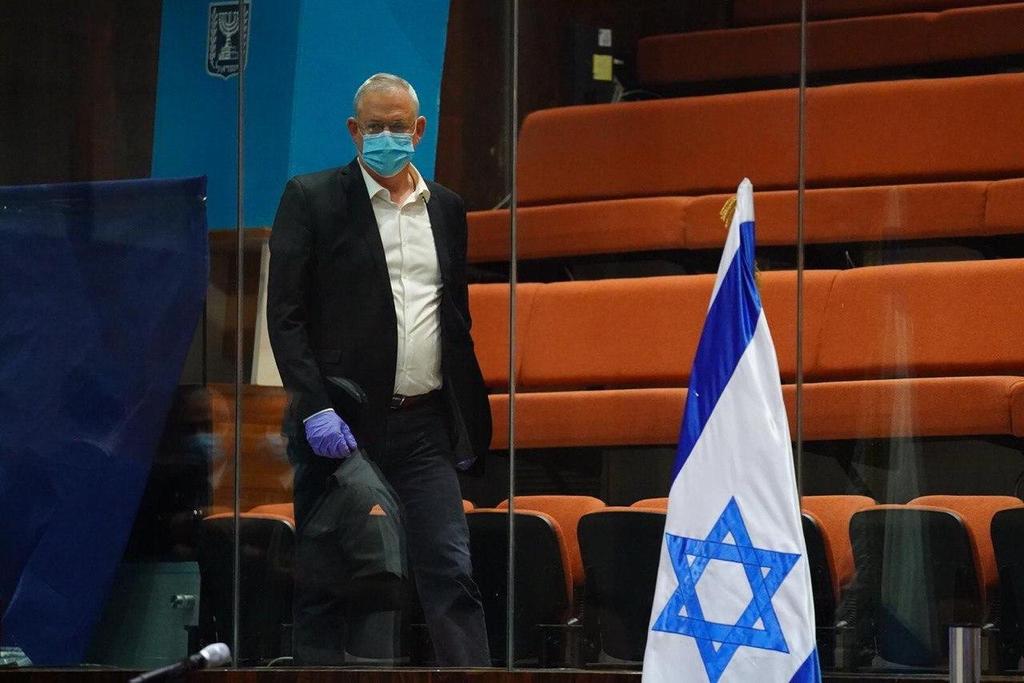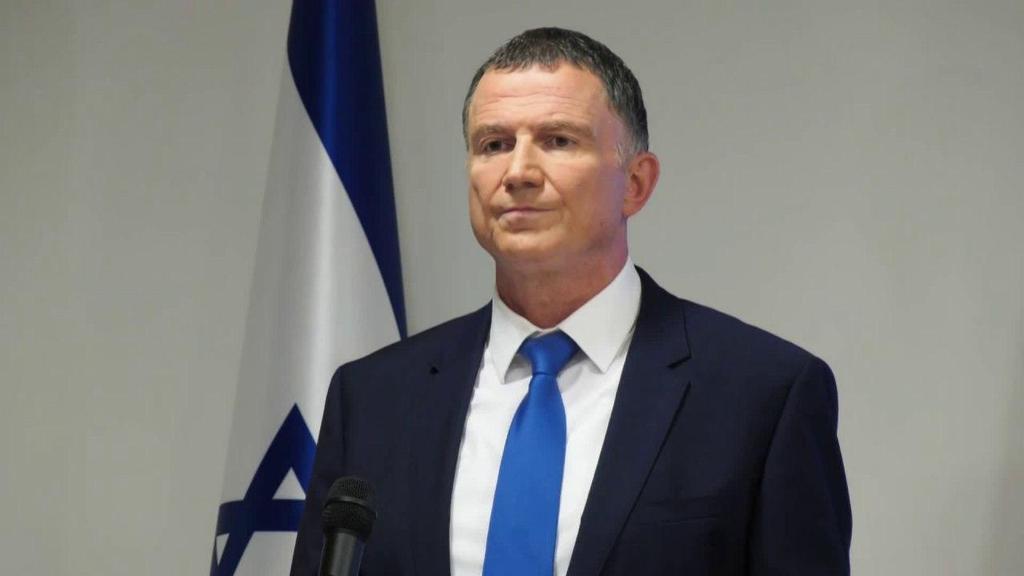Israel's government will take steps within the next 48 hours "to flatten the curve" of the rate of infection and avoid a new national lockdown during the second wave of the coronavirus pandemic, Prime Minister Benjamin Netanyahu said Wednesday, as he announced a one-off payment for all Israelis adults.
"We are doing everything we can to avoid a full closure, but to avoid it, we need your full cooperation, citizens of Israel," he said during a press conference in Jerusalem.
7 View gallery
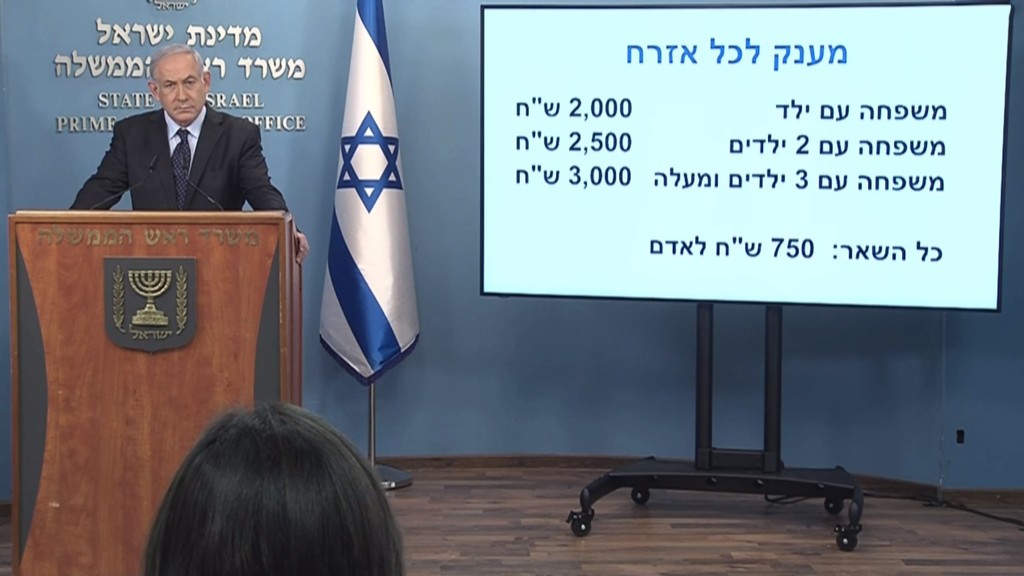

Prime Minister Benjamin Netanyahu announces a one-off payment to each Israeli adult
(Photo: GPO)
"The second wave we have been discussing is already upon us," Netanyahu said. "We are fighting it with determination and unity. We are taking health and economic measures. I hear [your] distress."
To that end, the prime minister said the state will be awarding every citizen of the country over the age of 18 with a staggered payment to alleviate some of the financial pressures caused by the crisis.
(PM Netanyahu announces a virus payment for every Israeli )
"Why are we giving this money? We have to get the economy moving," Netanyahu said. "This money will boost consumer spending and employment."
Single people without children will receive a payment of NIS 750 (approx. $220), while a family with one child will receive NIS 2,000 (approx. $580). Households with two children will receive NIS 2,500 (approx $730) and households with three or more children will receive NIS 3,000 (approx. $875).
The one-off payment comes in addition to the economic aid plan the government approved earlier in the week.
7 View gallery
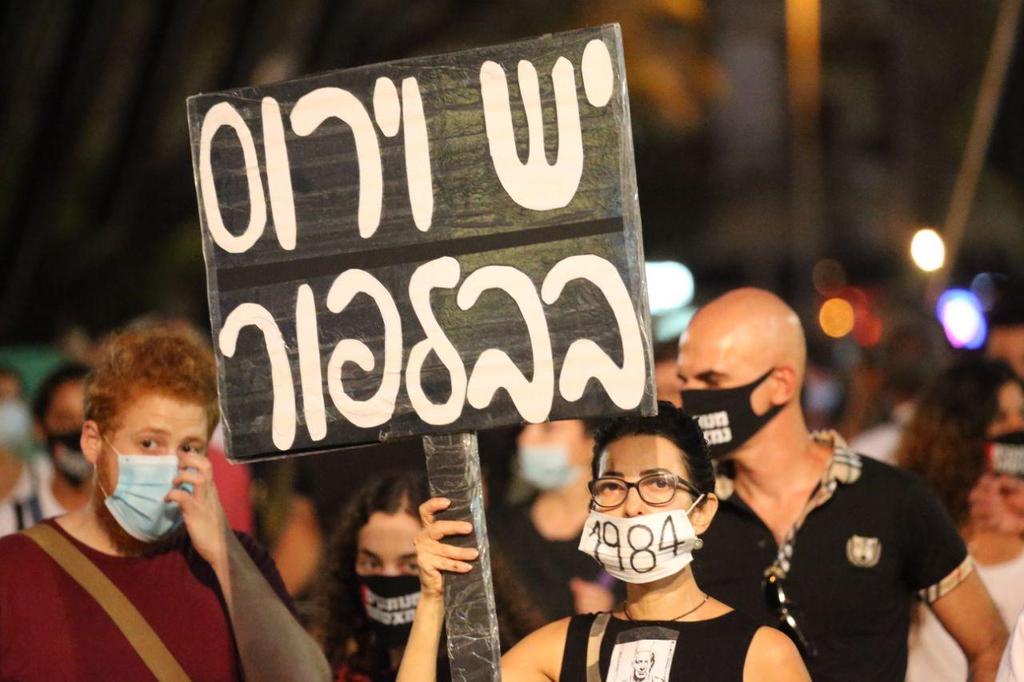

Israelis protesting the government response to the economic crisis in Tel Aviv on Saturday. The sign reads: 'There is a virus in Balfour' - a reference to the PM's official residence
(Photo: Moti Kimchi)
The government has come under repeated public criticism for its handling of the crisis triggered by the pandemic, as hundreds of thousands have found themselves unemployed or seen their businesses collapse.
Netanyahu said the money would be received within days through the National Insurance Institute system, but noted that final approval had to come first.
"I'm sure I'll get the support of [Alternate Prime Minister] Benny [Gantz] and the others, but it is not certain we will not have to go through legislation," he said.
The prime minister said he expected all Knesset factions to support such a move, given that they would have to legislate for the full economic plan in any event.
But the head of the Knesset Finance Committee, MK Moshe Gafni, slammed Netanyahu for his plan.
"Why do we have to give money to the rich?" asked the lawmaker from the ultra-Orthodox United Torah Judaism party after the announcement, adding that he was not surprised the government was "trying to avoid" bringing the move for a Knesset vote.
Economy Minister Amir Peretz, meanwhile, teased Netanyahu for the move.
"I welcome the newcomers to the socialist camp," said Peretz, who is head of the Labor party.
"Indeed, the economy is has taken a downwards turn, just as the rise in the minimum wage we fought for led to its most significant growth," Peretz said.
"Now above all we need to raise up those who are routinely struggling, as well as those who have joined their ranks due to the crisis," he said.
Israel has seen soaring numbers of infection since the country reopened its economy at the end of May, with rates unseen in the first wave of the virus. With new COVID-19 cases now exceeding 1,000 a day, some public health experts said it had moved too fast.
With unemployment at a record 21%, thousands of Israelis demanding economic relief demonstrated against Netanyahu on Saturday in Tel Aviv.
In Jerusalem on Tuesday, police used water cannon on thousands of anti-Netanyahu demonstrators outside his home.
7 View gallery
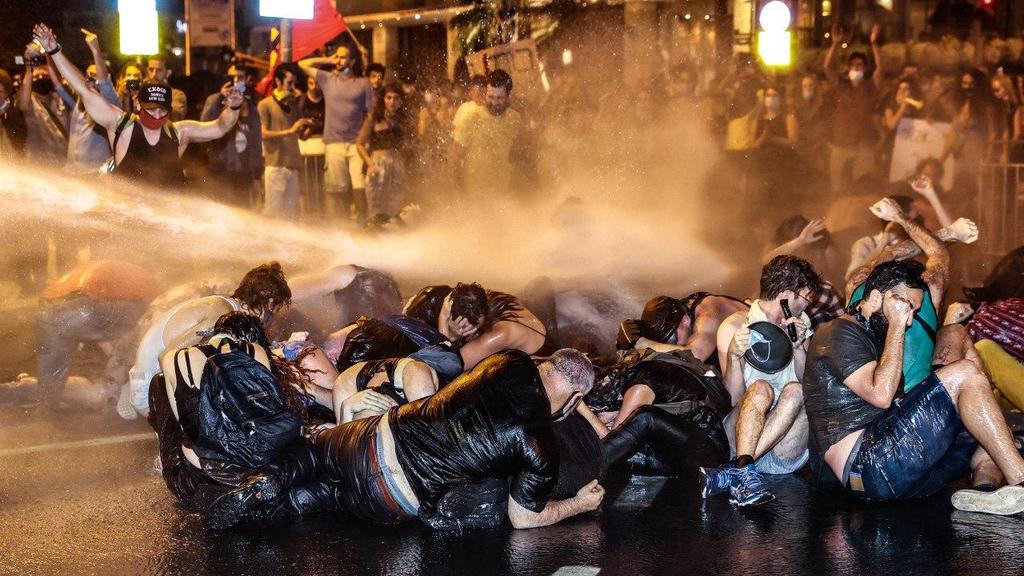

Police use water cannons on protesters outside the prime minister's Jerusalem residence on Tuesday night
(Photo: Alex Kolomoisky)
The prime minister denied the street protests had prompted the new aid package.
A poll by the non-partisan Israel Democracy Institute on Tuesday found only 29.5% of the public trust Netanyahu's handling of the health crisis.
Earlier Wednesday, the Health Ministry said there have been 1,055 new cases of the virus since midnight, just hours after Health Minister Yuli Edelstein warned that a failure bring down the high number of daily infections would lead to a new lockdown within days.
The number of nationwide cases since the beginning of the pandemic is now at 43,668 and the death toll at 375. Two people have succumbed to the disease since midnight.
7 View gallery
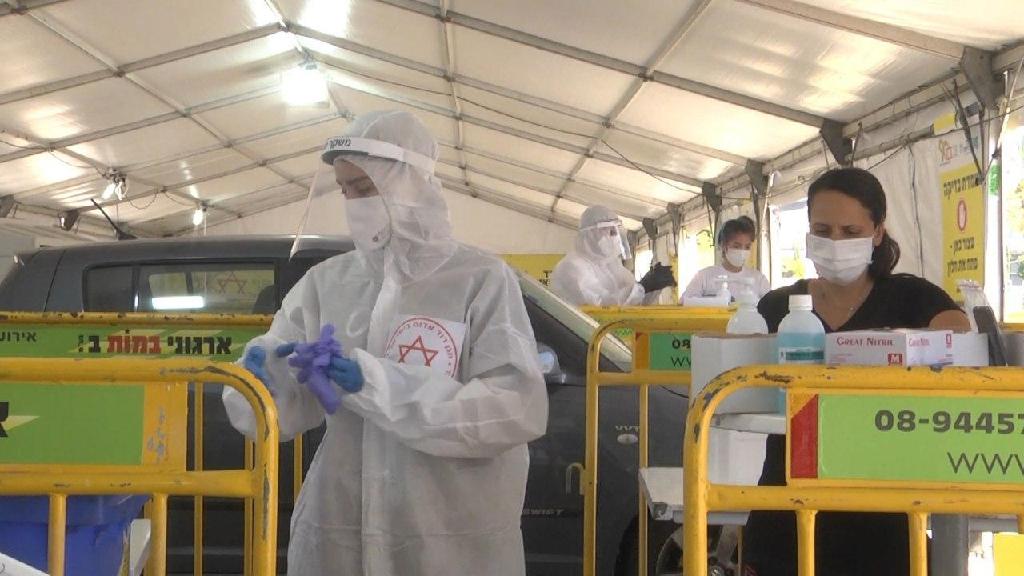

Healthcare workers man a drive through coronavirus test site in Tel Aviv
(Photo: Nitzan Dror)
Out of the 23,399 people currently battling COVID-19, 205 are in serious condition, an increase of 22 since Tuesday. There are now 57 people on ventilators, an increase of one in the past day.
Edelstein told Ynet earlier Wednesday that barring a miracle, Israel would be heading back into full lockdown within days.
The minister said he hoped the measures taken to mitigate the spread, including limiting numbers permitted to gather at events and in restaurants and imposing closures on hard-hit areas, would result in lower infections.
"If that happens, we would be able to postpone a decision [to return to lockdown]," he said.
"We will have to wait three or four days to see, but that would be a miracle."
Edelstein rejected criticism that the government had not taken steps to prepare for the second wave of coronavirus spread or that a lockdown would be an admission of failure on the part of authorities, claiming a lockdown is a measure to be taken in order to bring the number of daily infections down.


